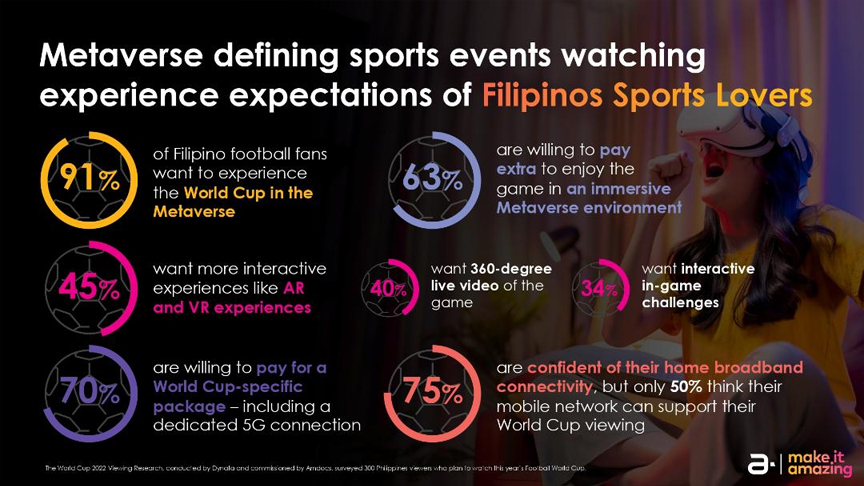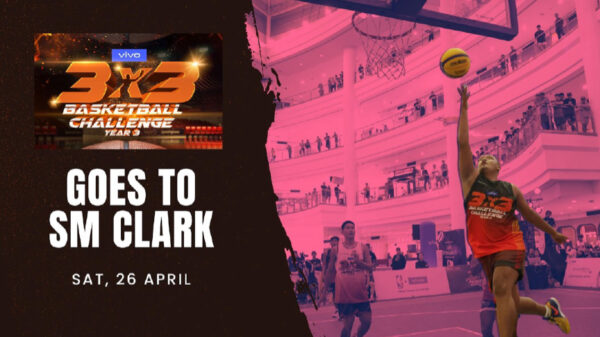Amdocs, provider of software and services to communications and media companies, today released research findings that give a modern look at consumer expectations around major sporting events like the Football World Cup.
The World Cup 2022 Viewing Report, conducted by Dynata and commissioned by Amdocs, surveyed 300 Philippines viewers who plan to watch this year’s Football World Cup. It found that viewers are largely ready for a new era of amazing interactive entertainment offerings and are willing to pay for digital products and services that make their experience more enjoyable. However, not having access to viewing the World Cup, coupled with questions around network reliability, could hinder this evolution.
Findings include:
- 91% of viewers expressed interest in using the metaverse to be part of a virtual stadium where they could watch sporting events with other fans as if they were there.
- Beyond the metaverse, viewers have a growing desire for more interactive experiences like AR/VR (45%), 360-degree live video of the game (40%) and interactive in-game challenges (34%).
- 70% of the game enthusiasts are willing to pay extra for an unlimited World Cup-specific mobile data package to stream matches at 5G speeds with no delays or loss of connectivity.
- 75% of millennials and 37% of Gen-X plan to stream the games. 56% of the viewers plan to watch the games on social media channels, with millennials leading this trend at 60%.
- While 75% of fans are confident in their home connectivity to support their World Cup viewing, confidence drops to 50% when it comes to their mobile network. Accessibility is also a concern, with 22% of total respondents stating they don’t have access to all games from their TV provider.
Anthony Goonetilleke, Group President of Technology and Head of Strategy at Amdocs said: “As 5G availability expands, we expect to see more service providers creating unique “experience packages” beyond generic 5G speed across all offerings—for instance, a connection specifically for the metaverse or augmented reality sports, and more – even packaged with hardware or other physical goods that enable or complement the experience. As experiences become more a la carte, there is a need for a new kind of approach that can be fine-tuned and uniquely tailored to end-users. This flexibility will be essential for players in an increasingly digital world, including next-generation entertainment experiences made possible by a reliable network.”












































































































